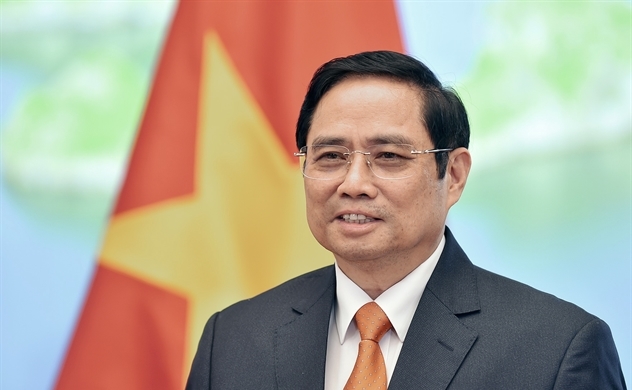Vietnam continues to work to reduce inflation and maintain macroeconomic stability

rime Minister Pham Minh Chinh. Photo courtesy of the Vietnam Government Portal
Despite recovering from the COVID-19 epidemic, the Southeast Asian economy has recently experienced a number of difficulties, including a decline in global demand and a stronger U.S. currency.
This year, the central bank increased its policy rates by a total of 200 basis points while allowing the dong to depreciate versus the dollar.
Over the previous three months, the dong currency has lost 6% versus the dollar while Vietnam's stock market ( VNI) has dropped by more than 20%.
The macroeconomy is becoming harder to control, according to Chinh. Everyone must be on the lookout for threats but certainly won't panic.
Vietnam's gross domestic product is predicted to increase by 8% this year, higher than the 2.58 percent growth seen in 2017. This year, the nation wants to keep inflation at a 4% maximum.
According to Chinh, the nation would keep up its active, careful, flexible, and strong monetary policy in concord cooperation with fiscal policy and other policies, without sudden adjustments.
The real estate market is experiencing liquidity issues. "After a time of robust growth, the bond and stock markets now face dangers, with firms having a high demand for money for production while banks' credit is restricted," Chinh told the legislature.
With commercial banks under pressure from tightening loan conditions and rising interest rates, the central bank of Vietnam conducted impromptu meetings with them this week to address liquidity in the system.
The government would take action to guarantee that the financial and real estate sectors run more efficiently and transparently.
In response to a shortage of gasoline, hundreds of gas stations have had to close or reduce sales in recent weeks, claiming financial hardships and limited domestic supplies, according to Chinh.
Chinh declared that in order to prevent future gasoline shortages, Vietnam will think about increasing its national fuel production and storage capacity.
Source: Reuters

 TIẾNG VIỆT
TIẾNG VIỆT 

_131447820.png)














